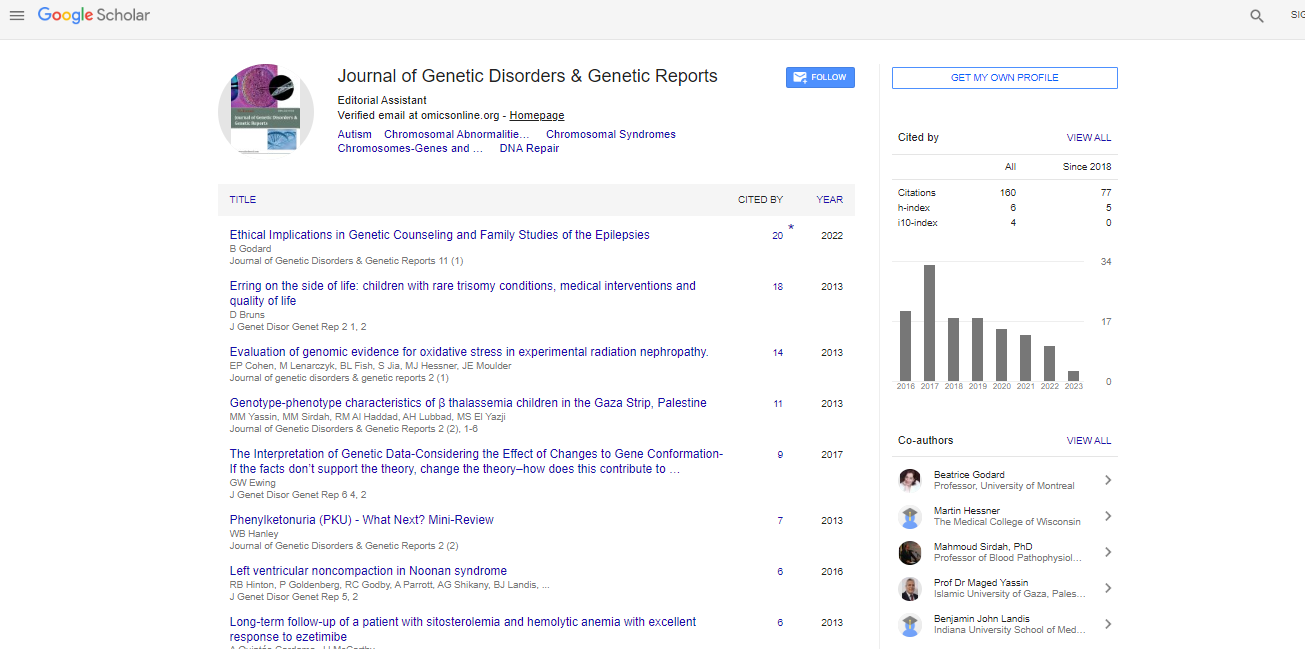Research Article, J Genet Disor Genet Rep Vol: 6 Issue: 1
PROK2 and PNCK – Novel Proteins Present in Follicular Fluid of Mature and Immature Human Oocytes: Preliminary Study
| Burnik Papler T1, Verdenik I2, Devjak R3 and Vrtacnik Bokal E1* | |
| 1Department of Human Reproduction, Division of Gynecology, University Medical Center Ljubljana, Slovenia | |
| 2Division of Gynecology, University Medical Center Ljubljana, Slovenia | |
| 3Institute of Oncology, Ljubljana, Slovenia | |
| Corresponding author : Prof. E. Vrtacnik Bokal, MD, PhD Department of Human Reproduction, Division of Gynecology, University Medical Center Ljubljana, Slajmerjeva 3, 1000 Ljubljana, Slovenia Tel: +38115226228 E-mail: eda.bokal@guest.arnes.si |
|
| Received: January 12, 2017 Accepted: February 01, 2017 Published: February 07, 2017 | |
| Citation: Burnik Papler T, Verdenik I, Devjak R, Vrtacnik Bokal E (2017) PROK2 and PNCK – Novel Proteins Present in Follicular Fluid of Mature and Immature Human Oocytes: Preliminary Study. J Genet Disor Genet Rep 6:1. doi: 10.4172/2327-5790.1000150 |
Abstract
Analysis of follicular fluid (FF), granulosa (GC) and cumulus cells (CC) gene expression can unravel the physiology of oocyte maturation. In our previous study, a meta-analysis of microarray results showed that prokineticin 2 (PROK2) and pregnancy up-regulated non-ubiquitis CaMkinase (PNCK) genes are differentially expressed between GC and CC. Follicular fluid represents an important medium for oocyte maturation. It contains mediators of folliculogenesis and their identification would help us better understand the process of oocyte maturation. The aim of this preliminary study was to determine whether PROK2 and PNCK genes are translated into proteins in FF. Furthermore, we wanted to determine whether their levels differ between FF of mature and immature oocytes. Thirty-six women included in the IVF processes for tubal factor of infertility were included in the study. Short GnRH antagonist prostocol was used for ovarian stimulation. Individual follicles were aspirated with transvaginal puncture. Enzyme-linked immunosorbent assay (ELISA) was used for determination of PROK2 and PNCK proteins in individual follicular fluid samples. Both proteins were present in FF of mature and immature oocytes. Level of PNCK was significantly higher in FF of mature (0.63 µg/L ± 1.78 µg/L) as compared to immature (0.17 µg/L ± 0.33 µg/L) oocytes. Level of PROK2 did not differ between mature and immature oocytes. Significant positive correlation between PROK2 and PNCK levels existed in FF of mature oocytes. In this preliminary study, we confirmed the presence of two novel proteins in FF of mature and immature human oocytes. Further studies with larger number of samples are needed to determine whether the concentration of PNCK truly differs between mature and immature oocytes. Also, their function in the process of oocyte maturation remains to be determined.
 Spanish
Spanish  Chinese
Chinese  Russian
Russian  German
German  French
French  Japanese
Japanese  Portuguese
Portuguese  Hindi
Hindi 



